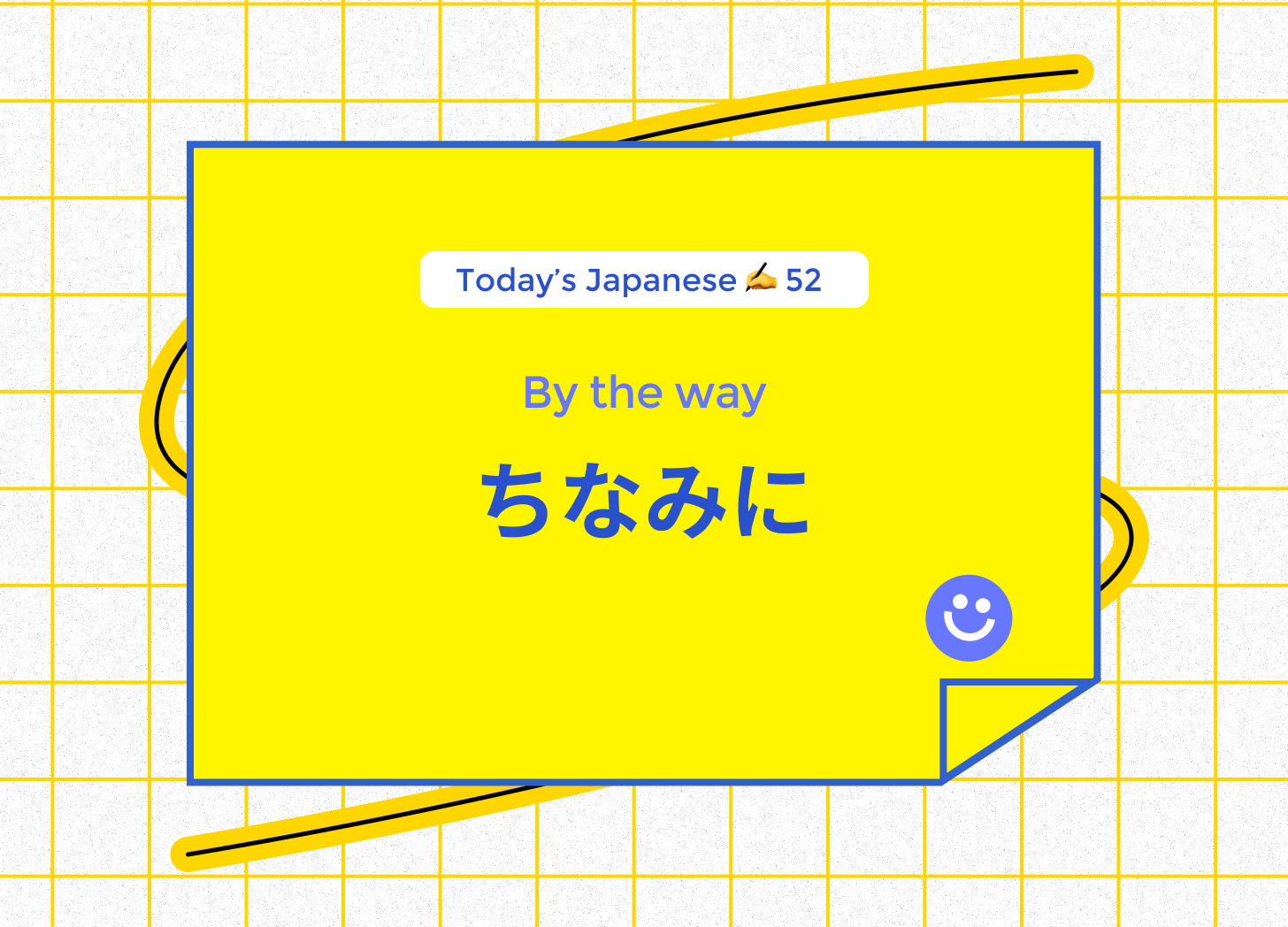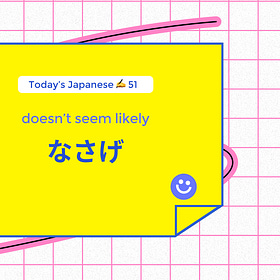こんにちは! Let’s learn how to use “by the way” but in Japanese! ちなみに is a super useful word to sprinkle extra details into any conversation. Let’s see how it works!
ちなみに Chinami ni
There are several ways to use ちなみに in your conversation
💡The origin of ちなみに comes from the old Japanese verb 因む (ちなむ), which means “to be related to” or “to be connected to something.” Over time, people started using it as ちなみに, an adverb to smoothly add extra information or a fun fact in conversations.
Now, it’s like saying, “By the way” or “Oh, and also,” making it super handy for casual chats!
Example Sentence
A: うちだと思(おも)ってゆっくりして。
Make yourself at home and relax.B: ありがとう!ちなみに、Wi-Fiのパスワード教(おし)えてもらえたりする
Thanks! By the way, could you tell me the Wi-Fi password here?
Example Sentence
A: 今日(きょう)は忙(いそが)しかったな~。疲(つか)れたわ~。
Today was so busy. I’m exhausted.B: お疲(つか)れさま!ちなみに、明日(あした)はクリスマスだから、サンタに「休暇(きゅうか)ください」ってお願いしたら?
Good job! FYI, tomorrow’s Christmas, so why not ask Santa for a day off?A: それいいね!プレゼントより嬉(うれ)しいかも…。
That’s a good idea! I might like that more than a present…
💡When completely changing the topic, you can use phrases like "ところで" or "そういえば." "そういえば" is more casual and conversational.
Example Sentence
A: 計画(けいかく)はすべて順調(じゅんちょう)です。
Everything is going according to plan.B: 了解(りょうかい)。ところで、例(れい)のあれはどうなっている?
Got it. By the way, how's that thing we talked about going?
今週も読んでくれてありがとう!また来週✌️!
Thanks for reading this newsletter! See you next week ✌️!
Previous Post 🗒️
なさげ doesn't seem likely
Thanks for reading FusenClub! Subscribe for free to receive new posts and support my work.
Thanks for reading FusenClub! Subscribe for free to receive new posts and support us🫶








